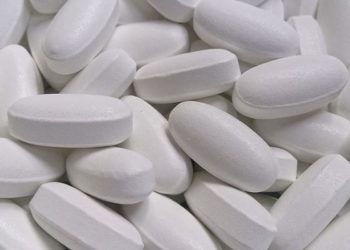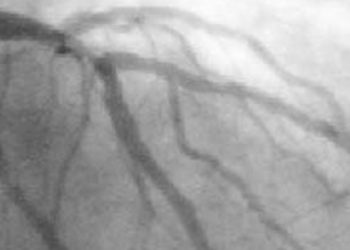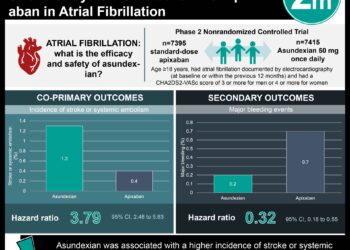Sex-related disparities in cardiovascular health care among patients with premature atherosclerotic cardiovascular disease
1. In this cross-sectional study, women with premature atherosclerotic cardiovascular disease (ASCVD) and extremely premature ASCVD were less likely to receive antiplatelet agents or statins than men.
Evidence level rating: 2 (Good)
Secondary prevention guidelines highlight the importance of initiation antiplatelet and statin therapy in patients with ASCVD, especially in younger patients. In this nationwide cross-sectional study, data from patients enrolled in the Veterans with Premature Atherosclerosis (VITAL) registry was used to evaluate the disparities in secondary prevention in women with premature ASCVD (ASCVD event at 55 years or younger) and extremely premature ASCVD (ASCVD event at 40 years or younger). The primary outcomes evaluated were antiplatelet use, any statin therapy, high-intensity statin (HIS) therapy, and statin adherence. Statin adherence was assessed using a validated measurement of proportion of days covered (PDC), calculated by dividing the prescription’s covered days supply by total days in the given period. There were 147,600 patients (10,413 women and 137,187 men) with premature ASCVD (<55 years) involved in the study. In this group, adjusted regression analysis demonstrated that women were significantly less likely to receive antiplatelets (odds ratio [OR], 0.59; 95% CI, 0.56-0.61), any statin (OR, 0.66; 95% CI, 0.63-0.69) or HIS therapy (OR, 0.64; 95% CI, 0.60-0.67). Women were also less statin adherent than men (mean [SD], 0.67 [0.35] vs 0.72 [0.32]; coefficient, -0.01; 95% CI, -0.02 – -0.01). The study identified 9485 patients (1,340 women and 8,145 men) with extremely premature ASCVD (<55 years). In this group, an adjusted analysis showed that female sex was independently associated with lower odds of antiplatelet use (OR, 0.61; 95% CI, 0.53-0.70), any statin use (OR, 0.51; 95% CI, 0.44-0.58), and HIS use (OR, 0.45; 95% CI, 0.37-0.54). However, there were no significant sex-associated differences in statin adherence. Overall, this study revealed that women veterans with premature and extremely premature ASCVD receive less optimal secondary cardiovascular treatment compared to men.
Click to read the study in JAMA Cardiology
Image: PD
©2021 2 Minute Medicine, Inc. All rights reserved. No works may be reproduced without expressed written consent from 2 Minute Medicine, Inc. Inquire about licensing here. No article should be construed as medical advice and is not intended as such by the authors or by 2 Minute Medicine, Inc.







![Novel biodegradable sirolimus-eluting stents non-inferior to durable everolimus-eluting stents [BIOSCIENCE trial]](https://www.2minutemedicine.com/wp-content/uploads/2014/09/Taxus_stent_FDA-e1607803635904-75x75.jpg)